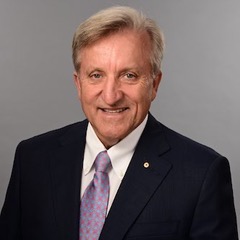In the June issue of Retail Pharmacy magazine, we spoke with Paul Sinclair, President-elect of the International Pharmaceutical Federation (FIP).
Today is the time of the pharmacist as the profession moves to command an increasingly hands-on role in disease state management and patients’ pharmaceutical care, says the veteran community pharmacist who will take over as the first Australian president of FIP at the global body’s World Congress of Pharmacy in Brisbane this year.
Tell us about yourself and your experience in the sector.
I’ve been a practising community pharmacist for 40 years, with much of that time as an owner of community pharmacies. I’ve been involved with the Pharmacy Guild of Australia at a state and national level, the Pharmacy Council of NSW and the Australian Association of Consultant Pharmacy. I’ve been actively involved with FIP for the past 13 years.
In Brisbane [at this year’s FIP World Congress of Pharmacy], I’ll take over the role as President of FIP as the first Australian and the first southern hemisphere pharmacist to do so.
Please provide a summary of FIP and its role in the industry.
- FIP is a non-governmental organisation founded in 1912, with its head office in The Hague, the Netherlands.
- Through our partnerships and extensive pharmacy and pharmaceutical sciences network, we work to support the development of the pharmacy profession through practice, emerging scientific innovations and through education and development of the pharmacy workforce to meet the world’s healthcare needs and expectations.
- FIP is in official relations with the World Health Organisation and has an active program of collaboration across key areas, including patient safety, anti-microbial resistance and medicine shortages.
Our goal is to improve global health by supporting the advancement of pharmaceutical practice, sciences and education.
You’re about to host your next international conference in Brisbane in September. Tell us more about this.
The World Congress of Pharmacy will be in Brisbane this year. It was originally scheduled for 2021, but COVID-19 disruptions for two years have meant it being rescheduled for September this year. The conference brings together pharmacists from all disciplines from around the world.
The conference theme is ‘Pharmacy building a sustainable future for healthcare: Aligning goals to 2030’. By utilising the FIP Development Goals and identifying short-term actions to transform the role and contribution of pharmacy, we can map a pathway forward.
Presentations focusing on practice scope, digitisation of health, and global health challenges will be delivered by respected subject matter experts from across the globe.
What is your message to the industry in Australia?
In Australia, pharmacy in all its forms has been through a period of trials and changes during the pandemic. Pharmacy has risen to the challenge of maintaining a face-to-face presence with its patients.
Community and hospital pharmacy’s extraordinary access has allowed for the broadening of scope of practice for pharmacists to fill the void left by other health professionals who retreated to a ‘virtual only’ model.
Today really is the time of the pharmacist, and we must leverage our skills, our trust with patients and our accessibility to become the first point of contact in the primary healthcare cycle and command an increasingly hands-on role in disease state management and patients’ pharmaceutical care.
The community pharmacy model in Australia is among the strongest in the world, but FIP brings lessons and experiences from many other models, which can be shared via the global member organisation family within FIP.
What are your FIP priorities for 2023 and beyond?
By aligning the FIP Development Goals, launched in 2020, with the UN Strategic Development Goals, we strive to support our members with implementation globally, regionally and locally.
Our global health priorities include anti-microbial resistance and primary healthcare programs.
Our professional priorities include our ‘patient safety’, ‘non-communicable diseases’, and ‘equity and equality’ programs.
Our member organisations remain our priority as we deliver a strong value proposition to them that is relevant and of direct benefit to their memberships.
This feature was originally published in the June issue of Retail Pharmacy magazine.








